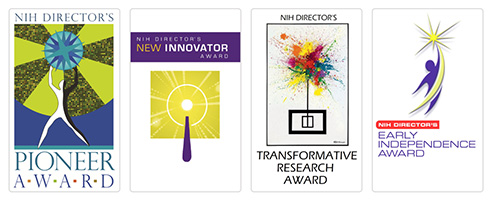2022 Diversity Statement
The NIH is committed to encouraging diversity in the scientific workforce while funding the best science across the nation (see NOT-OD-20-031). As part of NIH’s continuing efforts, the NIH Common Fund adopted recommendations from the 2018 Advisory Committee to the Director Working Group on High-Risk, High-Reward Programs and incorporated feedback from a 2019 Request for Information (RFI).
As a result of the feedback provided through these avenues, language in the funding opportunities was made more inclusive and strengthened to encourage applications reflecting the full diversity of potential PDs/PIs, applicant institutions, and research areas relevant to the broad mission of NIH. The funding opportunities encouraged applications from:
- Researchers from diverse backgrounds, including individuals from underrepresented racial and ethnic groups, individuals with disabilities, individuals from disadvantaged backgrounds, and women.
- The full range of eligible institutions, including those serving primarily underserved groups, those that may be less research-intensive, and from all domestic geographic locations.
- All research areas broadly relevant to the mission of NIH, including the behavioral, medical, natural, social, applied, and formal sciences and research that is basic, translational, or clinical.
To improve the awareness of the program to diverse scientific groups, the Common Fund participated in outreach efforts through presentations at relevant conferences and groups, emailed program information and funding opportunities to institution officials, provided additional website resources for applicants, and hosted informational webinars. The Common Fund intends to continue and expand upon these efforts.
The Common Fund continues to collaborate with the Center for Scientific Review on an anonymized review of Transformative Research Award applications. The anonymization seeks to focus the reviews on the merits of the proposed ideas and encourage applications from investigators who might not otherwise apply. The review of FY2021, FY2022, and FY2023 anonymized applications are now complete, and a third-party entity is contracted to conduct a comprehensive evaluation of the anonymized review process and its outcomes. The results of the evaluation will be made publicly available on the Transformative Research Award website next year.
Outcomes from these efforts may take time to show, but the Common Fund remains committed to increasing diversity within the program. The tables below display the percentage of females, underrepresented groups, and Hispanic or Latino applicants, finalists, and awardees for each HRHR initiative. Percentages are shown for the FY2023 cohort and the total for each initiative across all program years. Please note:
- These data are voluntarily self-reported by applicants, and some applicants choose not to provide this information.
- Unknown and withheld data are omitted from the percentage calculation.
- The data are given as percentages, and any percentage less than 5% is designated as “< 5%.” Percentages and ranges are used to protect the identity of applicants in compliance with The Privacy Act.
For reference, the number of FY2023 awards are as follows:
- Pioneer Award - 8 awards
- New Innovator Award – 58 awards
- Transformative Research Award - 6 awards (11 awardees)
- Early Independence Award - 13 awards
| Pioneer Award | New Innovator Award | Transformative Research Award | Early Independence Award | |||||||||
|---|---|---|---|---|---|---|---|---|---|---|---|---|
| Cohort Year | Applicants | Finalists | Awardees | Applicants | Finalists | Awardees | Applicants | Finalists | Awardees | Applicants | Finalists | Awardees |
| 2022 | 26% | 40% | 63% | 41% | 39% | 44% | 27% | 23% | 24% | 38% | 46% | 38% |
| Total | 24% | 28% | 33% | 33% | 30% | 36% | 22% | 19% | 19% | 39% | 33% | 29% |
| Pioneer Award | New Innovator Award | Transformative Research Award | Early Independence Award | |||||||||
|---|---|---|---|---|---|---|---|---|---|---|---|---|
| Cohort Year | Applicants | Finalists | Awardees | Applicants | Finalists | Awardees | Applicants | Finalists | Awardees | Applicants | Finalists | Awardees |
| 2022 | < 5% | < 5% | 13% | < 5% | < 5% | < 5% | < 5% | < 5% | 6% | 7% | < 5% | < 5% |
| Total | < 5% | < 5% | < 5% | < 5% | < 5% | < 5% | < 5% | < 5% | < 5% | < 5% | < 5% | < 5% |
Underrepresented groups include African American or Black, American Indian or Alaska Native, and Hawaiian or Other Pacific Islander based on the National Science Foundation report on Women, Minorities, and Persons with Disabilities in Science and Engineering. Race designations are set by the U.S. Office of Management and Budget (Federal Register, October 30, 1997).
| Pioneer Award | New Innovator Award | Transformative Research Award | Early Independence Award | |||||||||
|---|---|---|---|---|---|---|---|---|---|---|---|---|
| Cohort Year | Applicants | Finalists | Awardees | Applicants | Finalists | Awardees | Applicants | Finalists | Awardees | Applicants | Finalists | Awardees |
| 2022 | 7% | < 5% | < 5% | 6% | 5% | 6% | < 5% | < 5% | < 5% | 11% | 14% | 20% |
| Total | 5% | < 5% | < 5% | 6% | < 5% | 5% | < 5% | < 5% | < 5% | 7% | 7% | 10% |
Ethnic categories are set by the U.S. Office of Management and Budget (Federal Register, October 30, 1997).



